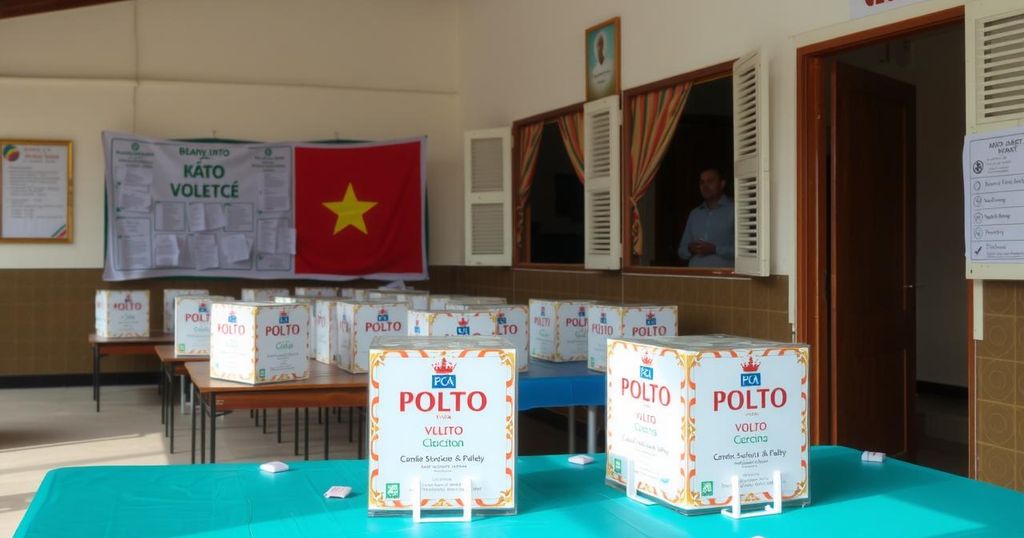On Sunday, Comoros voters elected a new parliament amid controversy surrounding President Assoumani’s rule and allegations of electoral irregularities. Approximately 338,000 voters participated, with nearly 100 candidates competing. Opponents suspect Assoumani’s intentions to establish a dynasty, while some opposition groups called for a boycott. Results are expected by Friday.
On Sunday, voters in the Comoros archipelago participated in elections for the 33-seat parliament, following a controversial re-election of President Azali Assoumani last year, which the opposition claimed was fraught with irregularities. The ruling party, however, dismissed these allegations. Approximately 338,000 registered voters attended polling stations, with the Supreme Court having approved nearly 100 candidates for the election.
Assoumani, who has governed since 1999 after assuming power through a coup, is suspected by opponents of orchestrating a succession plan for his son, Nour El-Fath, who was given extensive powers in 2024. Amid calls for a boycott from some opposition factions, including Juwa, led by former President Ahmed Abdallah Sambi, other parties opted to participate, believing this would highlight flaws in the ruling regime. Hamidou Karihila from the opposition Hope of the Comoros party noted, “The Azali regime is weakened … by participating in these elections we are contributing to further exposing the flaws in its system and accelerating its inevitable fall.”
The results of the election are anticipated by Friday.
The political landscape of Comoros has been turbulent, characterized by allegations of authoritarianism under President Azali Assoumani’s rule, which spans over two decades. His opponents criticize his governance style, particularly his efforts to establish a dynastic regime by empowering his son. The context of the current election is further complicated by recent historical events, including parliamentary elections held in January 2020 and the arrest and imprisonment of political dissidents, particularly Sambi. These developments contribute to a fraught electoral atmosphere, with various opposition groups adopting different strategies regarding participation in the elections.
The parliamentary elections in Comoros reflect a critical moment in the nation’s political history, marred by allegations of corruption and authoritarianism under President Assoumani. As voters cast their ballots, the divisions among opposition parties highlight ongoing tensions. While some advocate for boycotting the elections, others see participation as a means to challenge the regime openly. The outcomes of this election will significantly impact the political future of Comoros and its governance.
Original Source: www.muswellbrookchronicle.com.au






